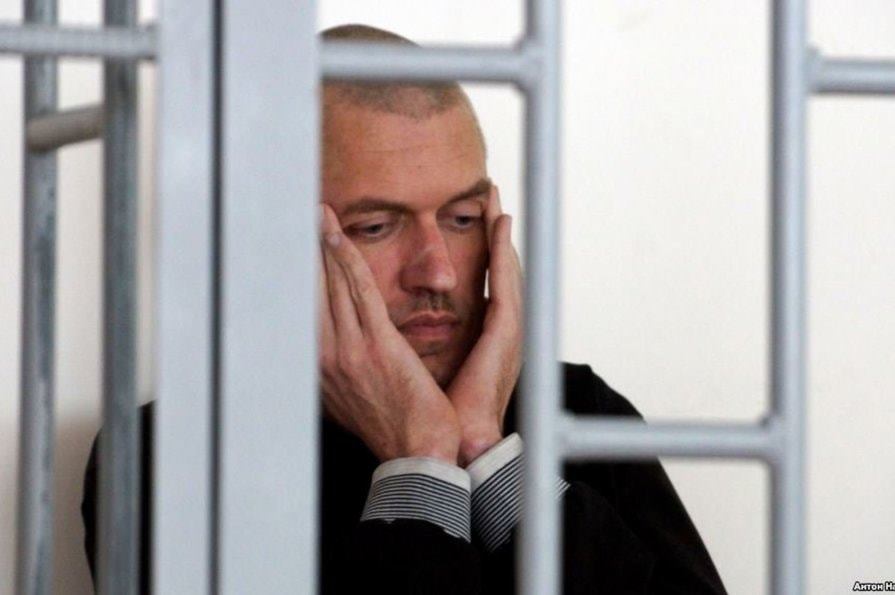
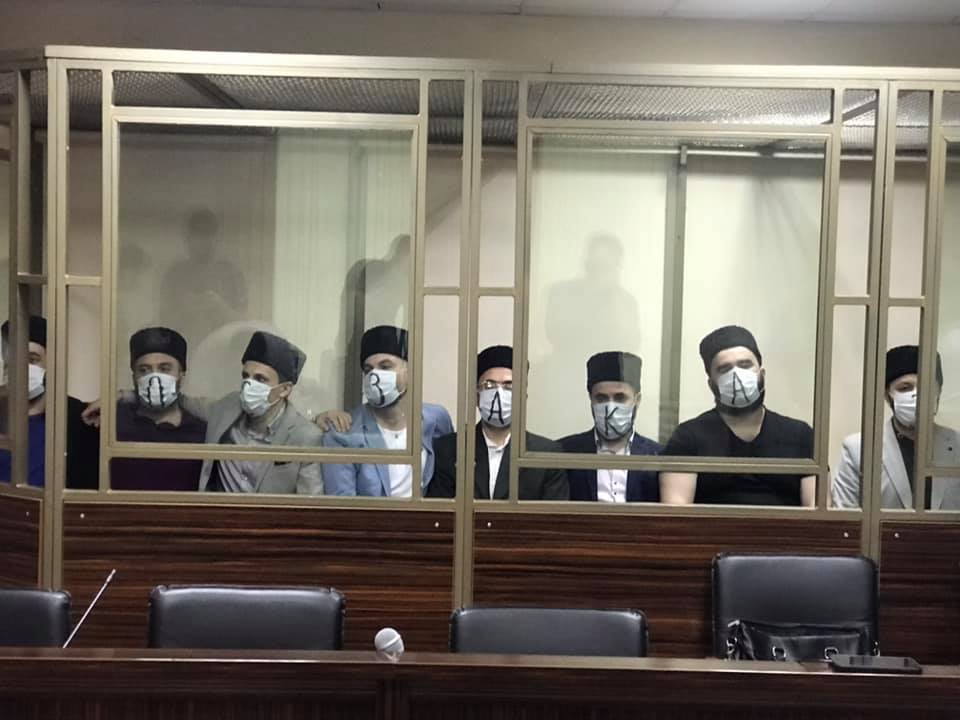
Making the case more egregious is the fact that seven of the eight accused are activists of Crimean Solidarity, an organization that sprung up in response to Russia's repressions of Crimean Tatars, an ethnic Muslim minority in Crimea which overwhelmingly stood up against Russian occupation in 2014. By documenting and broadcasting every repressive step of the Russian siloviki and kangaroo courts, and supporting the families of the imprisoned with ruble and prayer, Crimean Solidarity has emerged as a powerful voice of resistance against the persecution of opposing voices in the occupied peninsula. Making the case more heartbreaking are the 33 children now left without fathers in the traditionally large families.69 of the 99 Ukrainian political prisoners of the Kremlin are accused of Islamic terrorism without any evidene of terrorism. 76 of them are Crimean Tatars. Crimea is an open hunting ground for Russian politial repressions. #LetMyPeopleGo pic.twitter.com/lL2439bwiR
— Let My People Go_En (@LetMyPplGoUA_en) October 1, 2020
https://platform.twitter.com/widgets.js7 innocent Crimean Tatars sentenced to 110 years. 33 children left w/o fathers.
Marlen Asanov-19 yrs,4 kids Memet Belyalov-18 yrs,1 kid Timur Ibragimov-17 yrs,4 kids Server Mustafayev-14 yrs,4 kids Seiran Saliyev-16 yrs,4 kids Edem Smailov-13 yrs,3 k Server Zekiryaev-13 yrs,13k pic.twitter.com/4FfQf6M3CO — Let My People Go_En (@LetMyPplGoUA_en) September 17, 2020
Occupied Crimea caught in Russia's campaign against Muslims
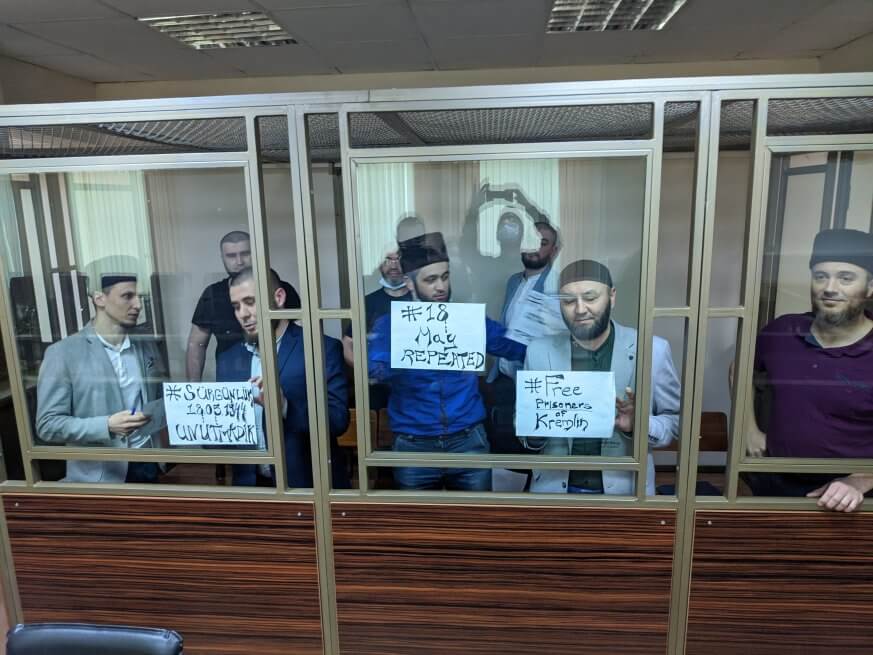
"Any Muslim who confesses the 'wrong' Islam, according to the law enforcement or official clerics, becomes a target for the special services. These people have drugs, cartridges, grenades planted on them, with arrests following. A huge amount of Muslims was forced out of Russian territory," says Sokolov.It was against this backdrop that Crimean Muslims found themselves in the crosshairs of the Russian special services:
"All Muslims are pressured in Russia, period. In Tatarstan, in North-West Siberia, Chechnya, Dagestan, Moscow... Crimea 'became' a part of Russia, and the Crimean Muslims received a full package of services from the Russian law enforcement organs... At first, the Crimean Tatars were all demonized in Russian media: they talked about them being not only Muslims but also separatists, that they will conduct terrorist acts. Hizb ut-Tahrir is prohibited in Russia. As far as I know, the same people who conducted the campaign against Hizb ut-Tahrir in Tatarstan and Bashkorstan went to Crimea," Sokolov stresses.Russia's repressions against non-systemic Muslims led them to consider more radical means of struggling against their tyrannical governments or to flee to countries that are more loyal to Muslims - like Ukraine, where Hizb ut-Tahrir operates legally.
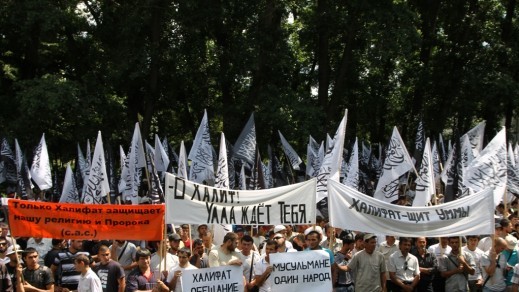
Does banning Hizb ut-Tahrir make sense?


Forged membership in Hizb ut-Tahrir: a tool for cracking down on activists

"These individuals are being targeted in order to dismantle ‘Crimean Solidarity,’ as part of a wider effort to suppress actual or perceived Crimean Tatar opposition to the Russian occupation of the Crimean Peninsula... the spectre of terrorism is being raised to isolate the Crimean Tatar community and galvanise non-Muslim support for the authorities’ repressions," the report's authors allege.The recent Second Bakhchysarai case is a vivid example of how the Russian court system fabricated evidence to incriminate Crimean Tatars with terrorism and sentenced them to up to two decades in jail. A detailed account of the case by the Ukrainian media graty.me allows reviewing the details.
Scandalous experts and "secret witnesses"
According to the prosecution, the accused were members of a Hizb ut-Tahrir created and led by Marlen Asanov, Timur Ibragimov, and Memet Belyalov. The case was led by FSB operative Nikolai Artykbaev, a turncoat of the Ukrainian Security Service who defected after the occupation. He organized a recording of conversations during three gatherings inside a mosque in Bakchysarai, which became the basis of the accusation of the eight Crimean Tatars of the Second Bakhchysarai case. Artykbaev personally transcribed the recordings, but made plenty of mistakes, not knowing Arabic.The "secret witnesses"


- Did I call on you to join Hizb ut-Tahrir? - I don't remember. - Did I give you Hizb ut-Tahrir literature? - I don't remember. - And the rest of the defendants, who specifically called on you, who didn't? - Yes, Marlen Asanov, Server Zekiryaev. - Did I call for the seizure of power? - I don't remember. - Did I call you to take hostages? - but the court for some reason removes the question. - Have I called on you to kill people in power? - I don't remember. - Did you study military science at the meetings? - I don't remember. - Did I call you to intolerance towards other nationalities? - I don't remember. - And intolerance towards people of other confessions? - I don't remember."
"Often, they are people who are dependent on the FSB, or who are in Crimea illegally. Based on the previous cases, we are sure that these are people dependent on the special services. Or simply FSB operatives -- anyway, the truth is not being considered at all."
The dubious experts
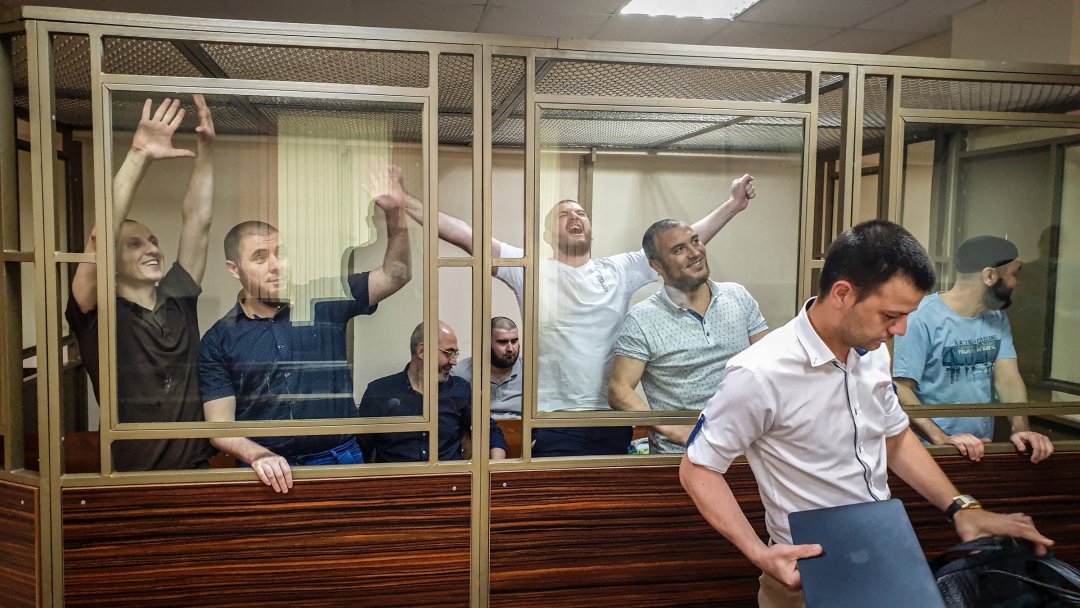
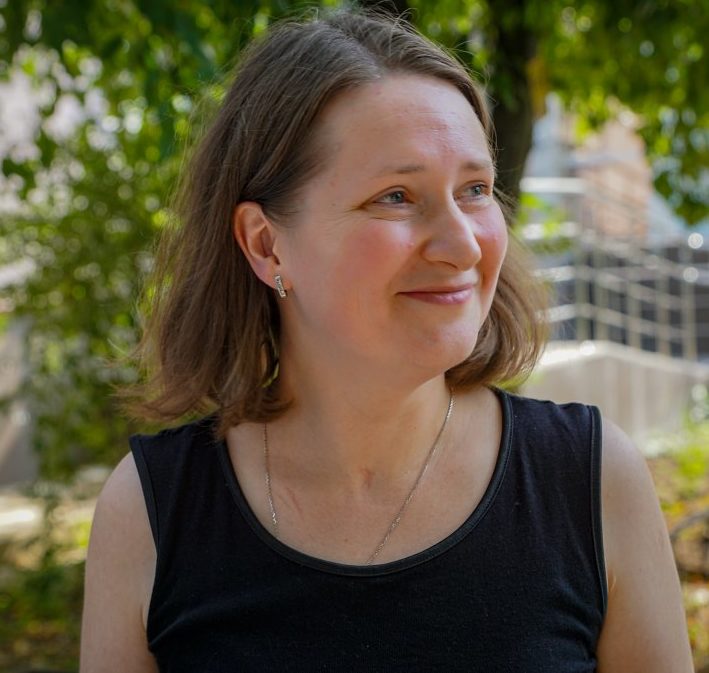
"So once we went to Rostov. And we met this guy. They swear really bad there, these locals, well, the non-Muslims. They swear! They have more profanities than normal words. They tie together these profanities with the normal words."Other topics in the discussion concerned who Muslims should be respectful of (everyone who does not actively harm Islam), that many Crimean Tatars do not yet know the basics of the Islamic faith and must be educated, and that Tatars should not look for flaws among other nationalities. Novozhilova was questioned in the court as well; when asked whether those heard conversing could have acquired new knowledge, she answered:
"In the course of this conversation, I believe, people got the idea of the concept of love in Islam."



